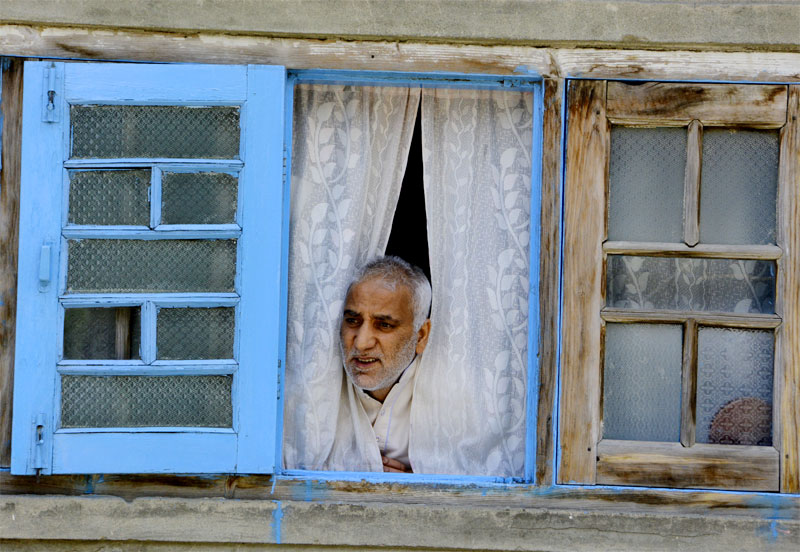There is a need to start the process for resolution
Ghazala Wahab
Irrespective of China’s long-term objective and the telling signs on the Line of Actual Control (LAC) for the last few years, one of the provocations for Beijing’s recent assertions in Ladakh was the revocation of Article 370 and Article 35A from the state of Jammu and Kashmir (J&K) on 5 August 2019.

Apart from the expected response from Pakistan, China had vociferously objected to what it called government of India’s ‘unilateral’ attempt to change the status quo in Ladakh. The objection came on August 6, just a day after government’s announcement. In a written statement, spokesperson for the Chinese foreign ministry, Hua Chunying called J&K an issue with the ‘legacy of history between India and Pakistan’. Expressing ‘serious concern’, Hua said, “The parties concerned should exercise restraint and act with caution, especially to avoid actions that unilaterally change the status quo and exacerbate the tension… We call on the two sides to peacefully resolve relevant disputes through dialogue and consultation and safeguard regional peace and stability.”
Three weeks later, in an interview to Press Trust of India (PTI), India’s ambassador to Beijing, Vikram Misri dismissed China’s objections. Calling revocation of Article 370 India’s ‘internal administrative reorganisation’, he told his interviewer that it “had no external ramifications whatsoever... no implication for either the external boundaries of India or the Line of Actual Control (LAC) with China.” According to him, since India was not raising any territorial claims, “the Chinese concerns in this regard were therefore misplaced.”
Misri was obviously articulating the government position—which had transformed posture into policy—that Kashmir was India’s internal matter. Hence, it did not occur to anyone to consider the geopolitical ramifications of the decision as defining as ending the special status of J&K. Not only did it reflect reneging on old compacts but also complete obliviousness of China’s growing influence (and presence) in South Asia and its strategic objectives.
Chinese do not believe in issuing empty threats or indulging in rhetoric. They either speak in parables or diplomatese, failing which they resort to symbolic actions to express their displeasure or future intent. However, post August 5, they spoke directly. And clearly. India chose to ignore it. Thereafter they started sending messages across through calibrated actions on the LAC. According to media reports, Chinese transgressions increased exponentially after August 5.
An article in the Indian Express newspaper on June 28 said, ‘The change in the Chinese approach, the (Indian) official said, came on September 10 last year when PLA troops vehemently started blocking Indian patrols from proceeding towards Finger 8. This was barely a month after the Bill for abrogation of Article 370 in Jammu and Kashmir and creation of Ladakh as a separate Union Territory was passed in Parliament on August 5.’
However, India ignored these clear signals, determined as it was to delink Article 370 from China’s increasing aggression on the LAC. China then made the next overture. Even more direct this time. During the Chennai Connect informal summit of October 2019, Chinese President Xi Jinping suggested to Indian Prime Minister Narendra Modi a India-China-Pakistan trilateral ‘free from the influence of third parties.’ This suggestion was also ignored by Modi.
Making this claim, Chinese minister of foreign affairs Wang Yi had told the media, “President Xi Jinping stressed that the Chinese side sincerely expects sound China-India relations, China-Pakistan relations and India-Pakistan relations and expects to see all sides work together to promote regional peace and stability and achieve development and prosperity.”
This was not a sudden proposal and India shouldn’t have been taken by surprise. The idea was first floated during the Shanghai Cooperation Organisation (SCO) summit in 2018. In an address to a Chinese embassy organised seminar in Delhi in June 2018, Chinese ambassador to India Luo Zhaohui said that India should join a trilateral mechanism with China and Pakistan. Saying that the idea was first mooted by some Indian scholars, Luo, in his address said, “Security cooperation is one of three pillars of the SCO. Some Indian friends suggested that China, India and Pakistan may have some kind of trilateral cooperation under the SCO.” Drawing a parallel between the Russia-Mongolia-China Dialogue, he said that a similar construct between China and the two South Asian nations was a possibility with potential.
You must be logged in to view this content.

